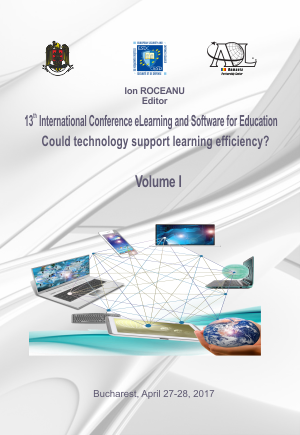DISRUPTING ADULT LEARNING IN MILITARY STAFF TRAINING AND EDUCATION
DISRUPTING ADULT LEARNING IN MILITARY STAFF TRAINING AND EDUCATION
Author(s): Alin BODESCUSubject(s): Social Sciences, Education, Higher Education
Published by: Carol I National Defence University Publishing House
Keywords: disrupting adult learning;team-based learning;flipped classroom
Summary/Abstract: In adult education we hear less and less references to teaching/ teacher or training/ trainer and more and more to learning/ learner and learning facilitator. What does that mean? If 50 years ago the learner's education was entirely dependent on highly skilled teachers, nowadays the learner is immersed and virtually surrounded by knowledge expressed in an incredible broad array of manifestation: written, spoken, illustrated, broadcasted and virtually shared (almost) for free. The way people have connected to each other over decades made the difference. From this perspective, generation X has been an ocean of isolated social groups, going to school and waiting for the teacher to deliver a formal curriculum, leaving them few choices and chances do get it by themselves. Time has changed and generation Y, and to a larger extent generation Z, can be imagined as individuals forming up nodes in a network of networks, highly dependent on Internet-connected mobile devices, taking a lot of information they need in informal or non-formal manners. We witness an accelerated technological advance reflected in the way people communicate and access the knowledge and real life experiences. Fifty years ago, the learner had to go to the public library and spend hours to get a piece of information from books. Nowadays, anyone might get it in minutes, from the most remote place in the world by joining online a professional group on LinkedIn. The approach toward adult education has also changed and new ways of influencing learner's behaviour has been implemented by the relevant academic world. Various disruptive ways to improve learning experience and integrate new information technology and trends in communication and social interaction into andragogy have been promoted by universities around the world. Military staff training and education has an important practical dimension, yet it might be assessed as being a trainer oriented activity rather than a learner driven process. This paper investigates possible ways and options to disrupt classical learning in military staff training and education opportunities and find answers to several questions. What does it take to adjust the learning environment to the reality we live? How much "classical" training can be disrupted by the "innovative" technology and recent progress in andragogy?
Journal: Conference proceedings of »eLearning and Software for Education« (eLSE)
- Issue Year: 13/2017
- Issue No: 01
- Page Range: 27-34
- Page Count: 8
- Language: English

